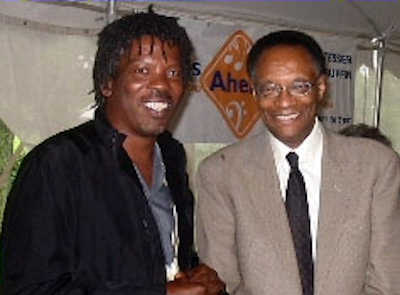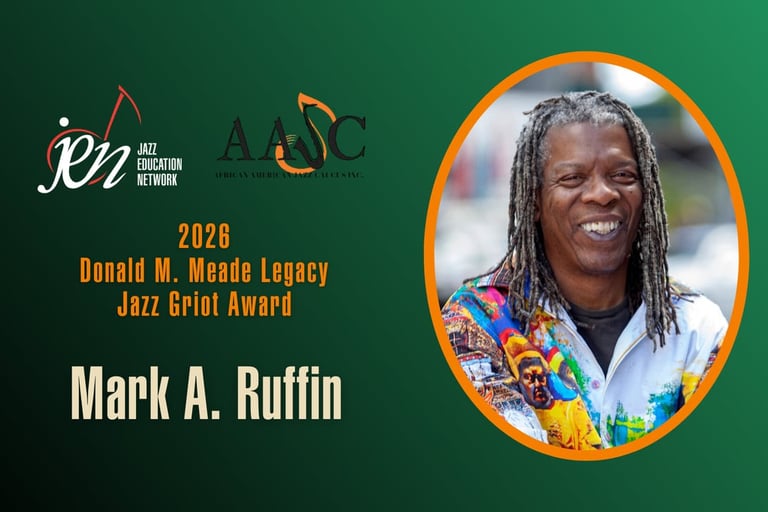Mark Ruffin was born September 24, 1956 in Chicago, Illinois. His father, an electrician, set up a shop on Chicago’s West Side that repaired TVs and radios on one side and sold records on the other. Ruffin’s Records was also where Mark (and his five siblings) gained the technical and musical knowledge that would form the nucleus of his career in jazz radio.
Ruffin’s first experience in radio was at Southern Illinois University in Carbondale, where he worked on the staff of campus radio station WSIU. His knowledge of electronics allowed him to earn his then-required FCC license; his love of the music gave him something to do when he was operating those electronics.
Over the next 25 years, Mark worked at WDCB-FM, where he started his career as an interviewer; WBEE-AM, where he brought the station ratings success for the first time in its twenty-year history; and WNUA-FM, where he produced the nationally syndicated Ramsey Lewis Show. He returned to WBEZ, before transitioning in the 2000s to a nationally syndicated show (co-hosted with Neil Tesser), Listen Here.
In 2005, Ruffin was hired by Harpo Productions—Oprah Winfrey’s shop—as a producer on Winfrey’s channel at what was then XM Satellite Radio. By 2007 he had moved to New York to work at XM’s jazz fusion channel, Beyond Jazz—then crossing over to Real Jazz, the channel that was created when XM merged with Sirius Satellite Radio in 2009. Ruffin turned the Beyond Jazz concept into a fusion program (now called “Friday Fusion”) and eventually became program director.
In the 1990s Mark began to pursue writing fiction—specifically, screenwriting, eventually becoming a 2003 semifinalist in the Sundance Institute’s screenplay competition. One of his early (unproduced) screenplays, a Jazz Age tale in which Fats Waller is kidnapped by Al Capone, suggested a unique, jazz-focused form of historical fiction. Ruffin reinvented himself as a writer of print stories, and from 2003until 2020 worked at the collection that has now become Bebop Fairy Tales.“How can I explain it, other than that it’s about how powerful jazz is in people’s lives?” he says. “I suppose the real thread behind all three stories is, ‘intolerance is stupid.’”










